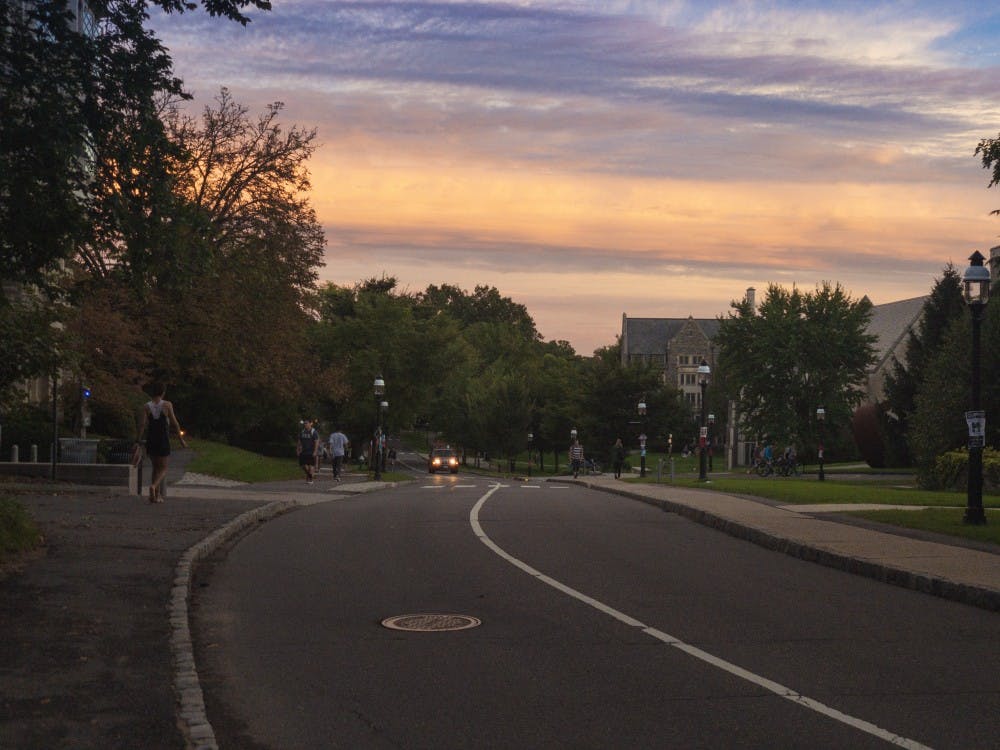Over the course of our Princeton careers, people come and go: friends, lovers, partners, and, for some, even family members. We make regular choices about whom to keep in our lives and whom to distance ourselves from — some people we keep because they bring us joy; others we keep because they fill a specific need, be it psychological, academic, or physical. Relationships — whatever they may be — are all based on choices.
That said, sometimes, we don’t choose to get rid of certain relationships, even when we recognize that they probably aren’t the best for us. Consider this: many of our friendships, especially in our first two years of college, are not based on mutual interests or passions. They’re based on sheer chance: your first friends are likely the people in your zee group, your roommates, your CA/OA group. You might not have anything in common with them, but you’re friends, well, because you’re stuck together.
There’s nothing wrong with this per se: many of our greatest friendships are formed by chance encounters. But by the same token, many of our greatest friendships are formed by getting to know people with similar interests and values, not to mention that our greatest friendships should be meaningful, fulfilling, and healthy.
When you’re stuck with someone during your first week of classes of your first semester of college, you might not realize just who else is out there — and that might be what’s keeping you from both pursuing better relationships and nipping a possibly unhealthy one in the bud.
Some of the friendships I made over the course of my first two years at Princeton did not turn out to be the ones that I kept, for a variety of reasons. In one case, we just grew apart. In another, we weren’t as kind to each other as we thought. And in another still, we didn’t actually have anything in common. It took months — even years — to figure this out, so in the meantime, I stuck around in relationships that weren’t very good simply because I didn’t know any better. We’d been friends since day one, I thought, so we had to continue being friends, right?
Your time at Princeton needn’t be hampered by friendships and other relationships that don’t fulfill you — life is too short for that. Consider the reasons that you’ve chosen to be friends with people: are you friends because your interactions give you meaning? Or because you were stuck together at some point? If the latter is true, continue probing. Do you continue your friendship out of a force of habit? Or because you truly enjoy each other? Asking these questions allows us to consider the reasons behind our relationships, and the answers reveal the depth of our interactions.
On the other hand, while I’m not very close with my first-year/sophomore year zee groups or CA group, I have made a handful of my closest friends through opportunities like these: my first-year roommates became some of the people nearest and dearest to my soul, and a few of the people in my CA group are those whom I count on regularly for love and support.
While you should ask yourself why you maintain relationships with your friends from these “stuck-together situations,” that does not mean (at all!) that they are, by default, bad. And even if they might be, letting go of them is both difficult and painful. We come into college with such high hopes that acknowledging their shortcomings isn’t what we’d necessarily like to be doing. Ending things might involve a tearful break-up — but it might also involve simply drifting apart, as people often do.

These first relationships are inescapable in the college experience: we all make friends by necessity and proximity. But we have to do ourselves (and them) a favor and wonder: do we maintain them because they mean something to us? Or because we just don’t know anything else?
Leora Eisenberg is a senior from Eagan, M.N. She can be reached at leorae@princeton.edu.









